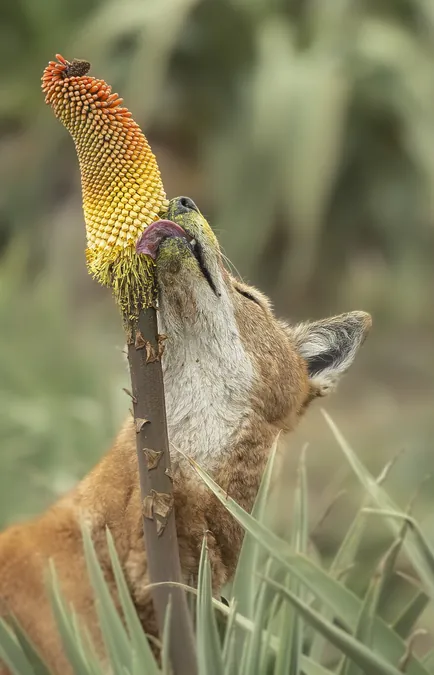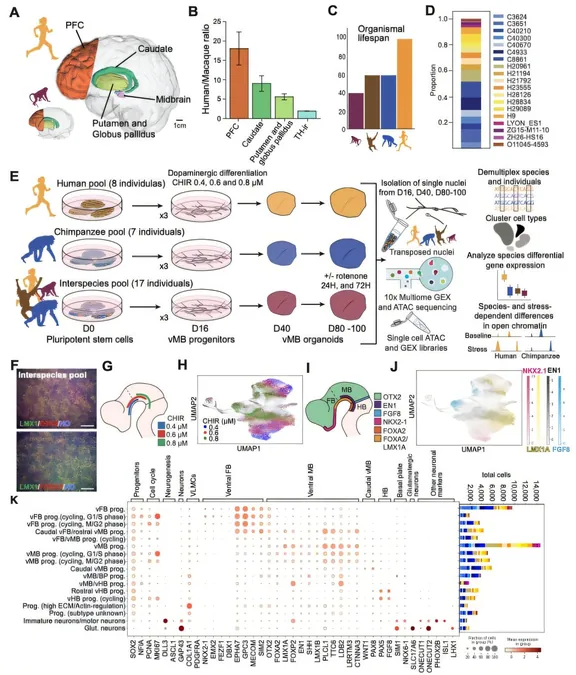
Sweet Tooth Discovery: Ethiopian Wolves Caught Sipping Nectar from Unique Flowers!
2024-11-20
Author: Olivia
Ethiopian Wolves and Their Unique Foraging Behavior
In a remarkable revelation, researchers have documented an exciting new behavior in Ethiopian wolves (Canis simensis), shedding light on their foraging habits. The findings, published in the journal *Ecology*, detail how these elusive canids are engaging in an unexpected activity: feeding on the nectar of the Ethiopian red hot poker (Kniphofia foliosa) flowers.
Observations of the Ethiopian Wolf Conservation Program
The Ethiopian Wolf Conservation Program (EWCP) team observed these wolves foraging at flower fields, with some individuals visiting up to 30 blooms in a single outing. Intriguingly, multiple wolves from different packs were discovered to be taking advantage of this sweet resource simultaneously. This behavior hints at a level of social learning, as younger wolves are often seen accompanying adults to these flowering areas.
Pollination Potential and Ecological Significance
As the wolves indulge in this nectar feast, their muzzles become dusted with pollen. This unintentional act could lead to a fascinating interspecies interaction, potentially allowing these large predators to contribute to pollination as they move from flower to flower. This discovery marks a precedent as it represents the first known plant-pollinator interaction involving a large predator and showcases the Ethiopian wolf as the only large carnivore observed consuming nectar.
The Importance of the Findings
Dr. Sandra Lai, a Senior Scientist at EWCP and the lead author of the study, emphasizes the significance of these findings: "This highlights the profound gaps in our understanding of one of the world's most threatened carnivores. These interactions reflect the complex relationships within the rich biodiversity of the 'Roof of Africa.' Unfortunately, this unique ecosystem faces serious threats from habitat loss and fragmentation."
Personal Encounters and Ecological Insights
Adding to the narrative, Professor Claudio Sillero, the founder and director of EWCP at the University of Oxford, shared his personal encounter with the Ethiopian red hot poker flowers: "I first recognized the sweet nectar when I noticed children from local shepherding communities enjoying the flowers in the Bale Mountains. I couldn't resist trying it myself; it was delightful! Seeing the wolves partake in this behavior confirmed that they’re also benefiting from this unusual energy source. It’s thrilling to report that this nectar-feeding is not just a rarity, but a common behavior among Ethiopian wolves, which underlines its ecological importance."
Conservation Challenges for the Ethiopian Wolf
The Ethiopian wolf, hailed as the world's rarest wild canid and Africa's most endangered predator, faces dire survival challenges. Home to fewer than 500 individuals, these wolves inhabit only six Afroalpine enclaves in the Ethiopian highlands, existing in 99 packs spread across this unique landscape.
The Urgent Need for Conservation Efforts
As habitats continue to dwindle, understanding the ecological roles and behaviors of such endangered species becomes ever more crucial. This sweet discovery not only highlights the extraordinary adaptability of Ethiopian wolves but also calls attention to the urgent need for conservation efforts to protect these magnificent creatures and their fragile habitat.









 Brasil (PT)
Brasil (PT)
 Canada (EN)
Canada (EN)
 Chile (ES)
Chile (ES)
 España (ES)
España (ES)
 France (FR)
France (FR)
 Hong Kong (EN)
Hong Kong (EN)
 Italia (IT)
Italia (IT)
 日本 (JA)
日本 (JA)
 Magyarország (HU)
Magyarország (HU)
 Norge (NO)
Norge (NO)
 Polska (PL)
Polska (PL)
 Schweiz (DE)
Schweiz (DE)
 Singapore (EN)
Singapore (EN)
 Sverige (SV)
Sverige (SV)
 Suomi (FI)
Suomi (FI)
 Türkiye (TR)
Türkiye (TR)